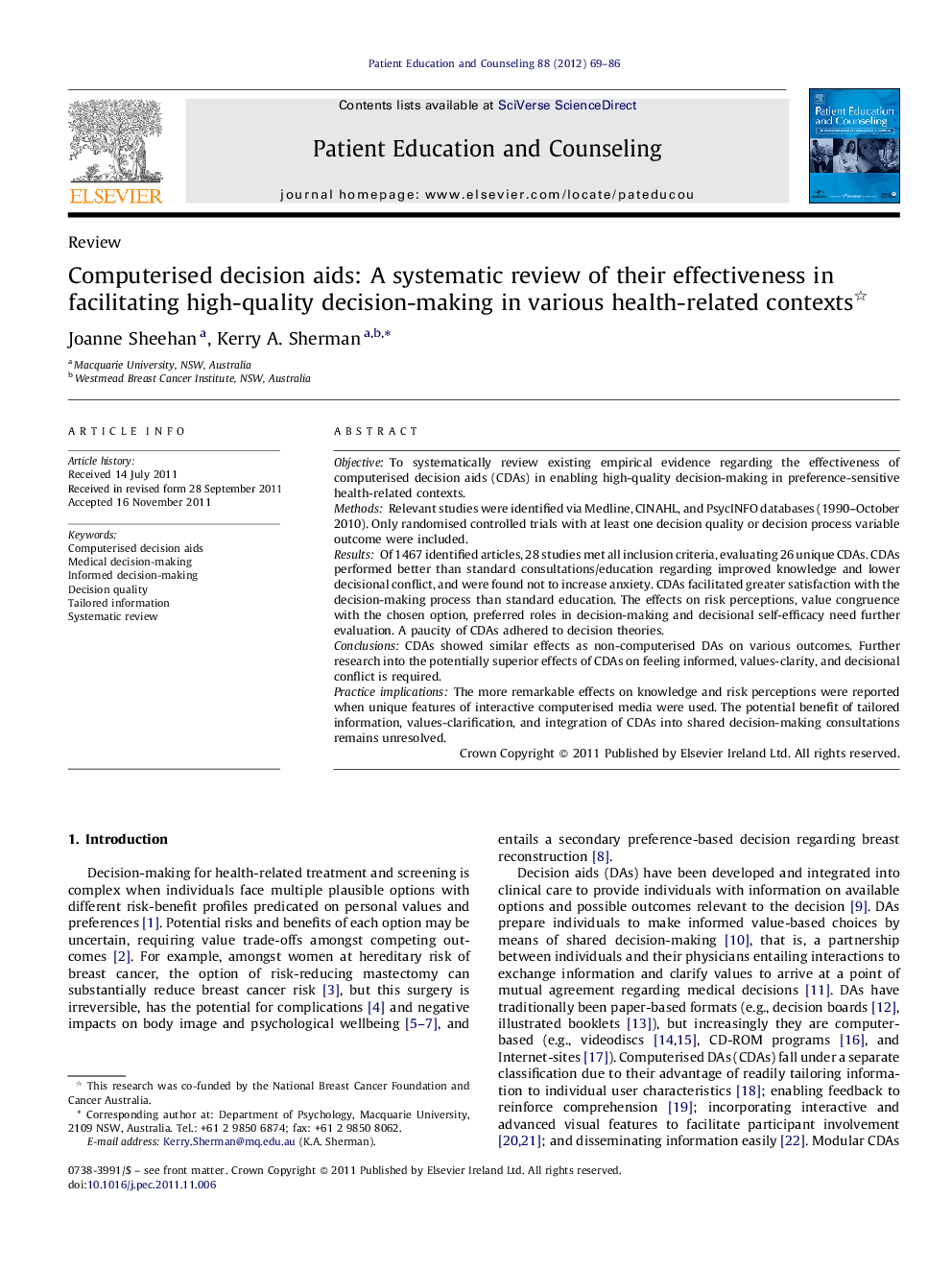| کد مقاله | کد نشریه | سال انتشار | مقاله انگلیسی | نسخه تمام متن |
|---|---|---|---|---|
| 6152669 | 1245959 | 2012 | 18 صفحه PDF | دانلود رایگان |

ObjectiveTo systematically review existing empirical evidence regarding the effectiveness of computerised decision aids (CDAs) in enabling high-quality decision-making in preference-sensitive health-related contexts.MethodsRelevant studies were identified via Medline, CINAHL, and PsycINFO databases (1990-October 2010). Only randomised controlled trials with at least one decision quality or decision process variable outcome were included.ResultsOf 1467 identified articles, 28 studies met all inclusion criteria, evaluating 26 unique CDAs. CDAs performed better than standard consultations/education regarding improved knowledge and lower decisional conflict, and were found not to increase anxiety. CDAs facilitated greater satisfaction with the decision-making process than standard education. The effects on risk perceptions, value congruence with the chosen option, preferred roles in decision-making and decisional self-efficacy need further evaluation. A paucity of CDAs adhered to decision theories.ConclusionsCDAs showed similar effects as non-computerised DAs on various outcomes. Further research into the potentially superior effects of CDAs on feeling informed, values-clarity, and decisional conflict is required.Practice implicationsThe more remarkable effects on knowledge and risk perceptions were reported when unique features of interactive computerised media were used. The potential benefit of tailored information, values-clarification, and integration of CDAs into shared decision-making consultations remains unresolved.
Journal: Patient Education and Counseling - Volume 88, Issue 1, July 2012, Pages 69-86